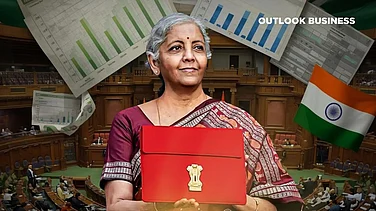On July 23, 2024, Hon’ble Finance Minister Nirmala Sitharaman, presented the first Budget of the current government. The Budget aims to lay out the roadmap for pursuit of Viksit Bharat (Developed India) with major focus on youth, farmer, the poor and on women empowerment. In line with the strategy set out in the interim budget, this Budget envisages sustained efforts on nine priorities or the ‘Navaratna’ for generating opportunities in the areas of agriculture, employment, skilling infrastructure, innovation and research & development.
From a CFO’s standpoint the Budget can both provide opportunities and pose challenges that could significantly impact financial strategies and operations. While the Budget offers several avenues for strategic planning and optimizing financial performance by leveraging on incentives and opportunities, the key lies in proactive thinking and a keen eye on emerging areas of risk based on priorities of the organization. Listed below are some key amendments.
Fiscal Growth and Boosting Manufacturing
With India’s economic growth continuing to shine with a GDP growth of a solid 8.2% in previous fiscal, and low and stable inflation rate (the core inflation (non-food, non-fuel) stood at 3.1%), the Budget aims to continue the fiscal consolidation path targeting to reach a deficit below 4.5% next year. To boost growth, manufacturing has been a focus and certain industries such as electronics, pharmaceuticals and defense, appear to be good starting points. Coupled with the benefits announced, a pragmatic stance on technology investments from China could provide an impetus to large or strategic manufacturing plans.
New Law on the Anvil
On the direct tax front, the Budget announced a comprehensive review of Income-tax Act, 1961 (“ITA”), with an intent to make it more concise, lucid, easy to read and understand, which is expected to be completed in 6 months. A beginning is being made in this current Budget by simplifying, TDS rate structure, reduced timelines for reassessment and revamped capital gains taxation.
Fund Raise and Investor Management
One of the most sought-after amendments which saw the light of the day was abolition of ‘Angel tax’ for all class of investors (wherein any sum received by a closely held company on issue of its shares at more than the fair market value of such shares, was regarded as taxable income in the hands of issuer company). This will benefit new-age companies looking for raising funds at different valuations in close time proximity.
Another key amendment impacting fund raise is unlisted debt instruments (convertible/nonconvertible) being regarded as ‘short term’ irrespective of their holding period and accordingly open to be subjected to higher rate of tax. This can impact transfer /redemption transactions which bear premium, held by both domestic as well as global investors. For global investors from countries with treaty benefits on such instruments, treaty eligibility will need a review; if these instruments have a conversion option, whether the same should be converted or redeemed. Typically, funds from operations are used for redemption of these instruments at a premium. If the instruments are converted, then they will need to be bought back to upstream funds to investors and will need evaluation.
This brings us to another key amendment impacting upstreaming by buyback from an Indian company. It is proposed that the distribution from buyback of shares by an Indian company will be akin to taxation of dividend receipt by the shareholder and taxed in their hands at applicable tax rate. Implication being, instead of fixed rate of tax as prescribed by the ITA, for resident shareholders, higher tax rate may become applicable on such buyback transaction. Further, for non-residents, depending on the taxability of dividend in the jurisdiction of residence of the shareholder and the benefit under the applicable tax treaty, feasibility, and cost of repatriation under buyback route will need to be evaluated on a case to case basis.
Faster Certainty on Tax Assessments
The Budget further seeks to simplify the provisions pertaining to reassessment by reducing the timelines for reassessment under the ITA, from 11 years from end of financial year earlier, to almost half of 6 years and 3 months from the end of financial year. This will have a significant positive impact on any new investor or deal negotiations.
From the Goods & Service Tax perspective as well, with a view to standardize the limitation period for issuing notices and orders in all cases from FY 2024-25 onwards, timelines of issuance of show cause notice have been now defined to 42 months from due date of annual return and passing of order within 12 months from date of show cause notice (subject to further extension of 6 months).
(Nandita Pai is Partner and CFO Program Leader at Deloitte India. Deepa Dalal is a Partner at Deloitte India. Views expressed are authors' personal)






















